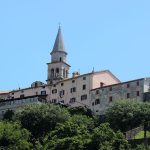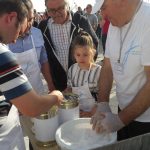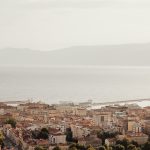MEP Ivan Jakovčić encouraged Istria’s garlic producers to apply for Protected geographical indication status
If someone asked you to cite a couple of famous features of Istrian gastronomy, you’d probably think of olive oil or truffles first. Well, you should add garlic to that list: the Association of Producers of Istrian Garlic was officially founded in Pazin, reports Glas Istre on February 17, 2018.
“Our garlic is the white gold of Istria, we’ve been guarding it for generations”, said the newly-elected association president Renco Stranić. Launched about ten days ago, the initiative to form an association of garlic producers was quick to come to fruition, and its members are now looking to launch an official procedure for the Istrian garlic to be granted the Protected designation of origin or the Protected geographical indication status by the EU.
MEP Ivan Jakovčić stated the Istrian red garlic differs from other varieties owing to its quality and other various features, remarking that the European seal of approval would certainly help Istrian farmers to make better living from their land. He cited the example of the farmers’ market in Strasbourg, where ‘nameless’ garlic varieties go for 1,5 euro per kilo, but protected French varieties come at a price of 4,5 euro.
Garlic seems to be the talk of the town these days, as the European Parliament will host an assembly on the significance of garlic as part of the European gastronomic culture on April 10. MEP Jakovčić invited the Istrian producers to attend the upcoming symposium.
Istria County pledged to help the local garlic producers to brand their product. Considering that Istrian tourism companies are increasingly ordering indigenous Istrian products to appeal to their guests, garlic producers have also been promised help with product placement. The Department of Agriculture of Istria County stated the newly-formed association can now work on creating a recognisable brand of Istrian garlic, which would help the farmers to increase production, improve the quality of their product, connect with scientific and research institutions, and acquire agricultural equipment at a lower price.
Research conducted by the European Commission showed that products with assigned protection status sell for a price 2,3 times bigger than similar products without EU protection. Such a label also provides customers with a guarantee of quality and origin.









